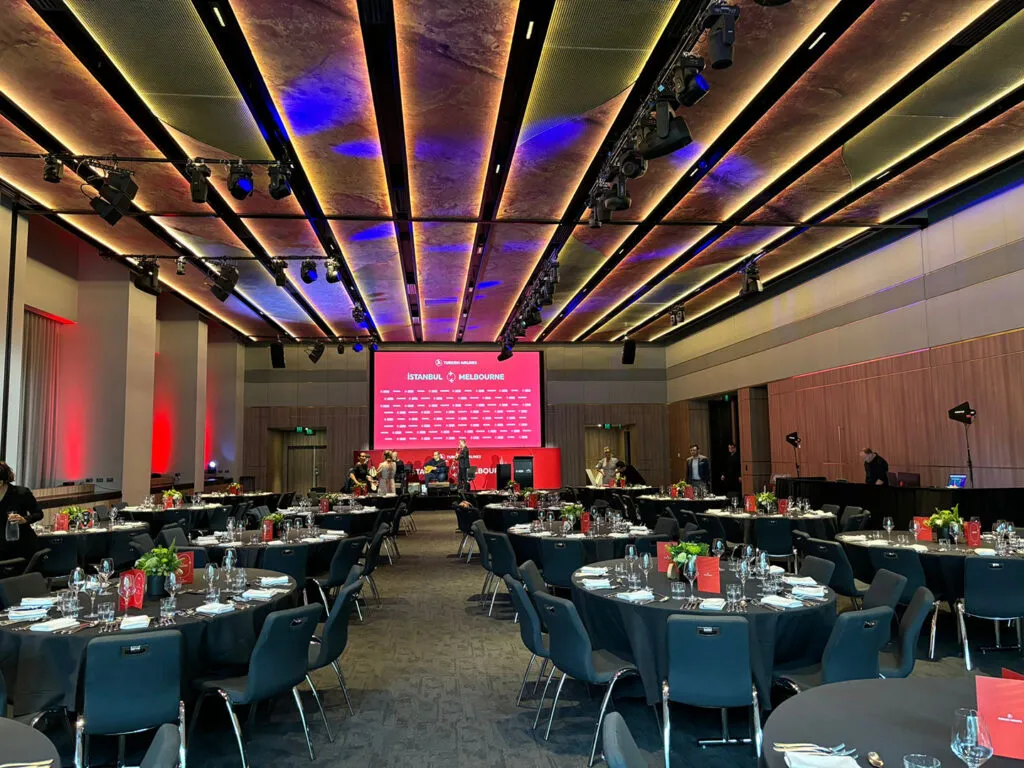At a glance:
- Understand the importance of allocating sufficient time for event tasks to avoid last-minute rushes and ensure quality execution.
- Learn why it’s crucial to communicate comprehensive labour costs to clients for a transparent billing process.
- Explore how meticulous planning of task sequences can prevent bottlenecks and enhance the overall event experience.
Event planning is a delicate art that transforms mere gatherings into extraordinary experiences. Whether it’s a corporate conference, a wedding, a product launch, or a charity fundraiser, meticulous planning serves as the foundation for success.
While many event planners diligently address the obvious facets like guest lists, decor, and entertainment there exists a realm of lesser-known but absolutely vital aspects that can make or break an event.
In the realm of event management, certain areas consistently take the spotlight. From securing a suitable venue to curating captivating entertainment, these facets are well-discussed and their importance widely recognised.
Yet, beneath this surface lies a hidden landscape of critical components that often remain overlooked in the flurry of preparations. It’s these very aspects that can subtly shape the trajectory of an event, leaving attendees either raving about an unforgettable experience or pondering over missed opportunities.
As we embark on this journey to uncover the often-unseen dimensions of event planning, we’ll shed light on these lesser-known aspects that can elevate an event from good to exceptional. By exploring the intricacies of defining clear objectives, understanding the intricacies of your target audience, budgeting beyond the basics, and delving into logistics and operations, we’ll unveil the secret ingredients to crafting seamless events.
Furthermore, we’ll dive into the art of effective communication, engagement strategies that foster connections, and the post-event reflections that provide valuable lessons for the future.
Prepare to delve into the realm of event planning that extends beyond the familiar territory. Let’s equip ourselves with the insights that have the potential to revolutionise our approach, ensuring that no stone is left unturned and no detail is too insignificant to merit attention.
Together, we’ll unravel the elements that go unnoticed by many but are paramount to orchestrating events that resonate long after the final curtain call. Some significant aspects of Event Planning that are often overlooked are:

Time Constraints
One of the most common misconceptions in event planning is underestimating the time required for various tasks. Clients and even some event planners can assume that tasks will be completed quickly.
However, the reality is that most aspects of event planning – from coordinating vendors, securing permits, and setting up technical equipment to arranging logistics – often take longer than anticipated. Event planners should allocate sufficient time for each task, considering potential delays and unexpected setbacks.
Properly managing timelines helps prevent last-minute rushes, ensures quality execution, and reduces the risk of errors due to haste.
Labour Cost Management
Clients frequently focus on the direct costs of items and services, but they might overlook the labour-intensive processes associated with these items.
For instance, while a stage or equipment rental might have a specific cost, clients might not consider the time and effort required for transportation, setup, testing, and teardown.
Corporate event management companies should ensure that clients understand the comprehensive labour costs involved in executing a seamless event.
Clear communication about the holistic pricing structure helps manage client expectations and avoids surprises in the final bill.
Sequential Workflow
The flow of an event isn’t just about the program or agenda; it extends to the sequential workflow of setting up, executing, and dismantling the event elements.
Overlooking the sequential nature of event tasks can lead to bottlenecks, confusion, and disruptions. Event planners must meticulously plan the order in which tasks are carried out, from vendor arrivals and setup to audio-visual checks and guest arrivals.
A well-thought-out sequential workflow ensures that different aspects of the event seamlessly transition from one stage to the next, minimising downtime and enhancing the overall event experience.
Safety and Security Measures
Ensuring the safety and security of attendees, staff, and participants should be a top priority. Event planners must consider factors such as crowd control, emergency exits, medical support, and communication protocols in case of emergencies.
Ignoring safety measures can result in chaos during the event and pose serious risks to participants.
Proper planning involves collaborating with security professionals and local authorities to develop a comprehensive safety plan that addresses potential hazards and outlines procedures for different scenarios.
Risk Management
Events inherently involve a degree of uncertainty, and failing to anticipate potential risks can lead to significant disruptions. Event management agencies should conduct thorough risk assessments to identify possible challenges, such as weather-related issues, technical failures, vendor no-shows, or logistical hiccups.
By identifying these risks in advance, planners can develop contingency plans and protocols to address them if they arise. A comprehensive risk management strategy helps minimise the impact of unexpected incidents on the event’s success.
Venue Logistics
The layout and accessibility of the event venue are often overlooked, but they can greatly impact the attendee experience.
Event planners should consider factors like seating arrangements, traffic flow, and accessibility for individuals with disabilities.
Ignoring these aspects can lead to cramped spaces, uncomfortable seating, and difficulty navigating the venue, which can ultimately affect the overall enjoyment of the event.

Waste Management
Large events can generate a significant amount of waste, including food waste, packaging, and materials. Event planners should incorporate sustainable practices by arranging for recycling and waste disposal systems.
Ignoring waste management can lead to environmental concerns and detract from the event’s image.
By implementing eco-friendly practices, event planners can contribute to reducing the event’s carbon footprint and promoting environmental responsibility.
Communication Plan
Effective communication is crucial for ensuring that all stakeholders are informed and on the same page. Neglecting to establish a clear communication plan can lead to confusion, missed instructions, and mismanagement.
Event planners should establish communication channels, designate key points of contact, and provide detailed event information to vendors, staff, and participants well in advance.
Suggested read: Safety & Hygiene Protocols For Events Update
Addressing these often overlooked aspects requires effective communication, careful planning, and a thorough understanding of the event’s intricacies.
Event planners should educate their clients about the time, effort, and resources required for various tasks, ensuring transparency and alignment of expectations. Additionally, using project management tools and software can help event planners track timelines, allocate resources, and maintain a smooth sequential workflow.
By proactively considering time constraints, labour costs, and sequential workflow, event planners can elevate their professionalism, enhance client satisfaction, and create memorable events that run smoothly from start to finish.
At Peanut Productions, we’ve mastered the art of orchestrating seamless events that leave lasting impressions. With a legacy of bringing people together in meaningful ways, we’re not just event planners – we’re creators of extraordinary experiences. Our expertise extends across the corporate sector in Australia and beyond, where we’ve consistently set new standards in event execution.
We’re not just planners; we’re architects of unforgettable memories. Whether you’re organising a corporate conference, a grand gala, or an intimate gathering, we have the expertise and passion to bring your vision to life.
Don’t settle for ordinary when the extraordinary awaits. Visit Peanut Productions today and embark on a journey of event excellence that goes beyond expectations. Your event deserves nothing less than the Peanut Productions touch.


